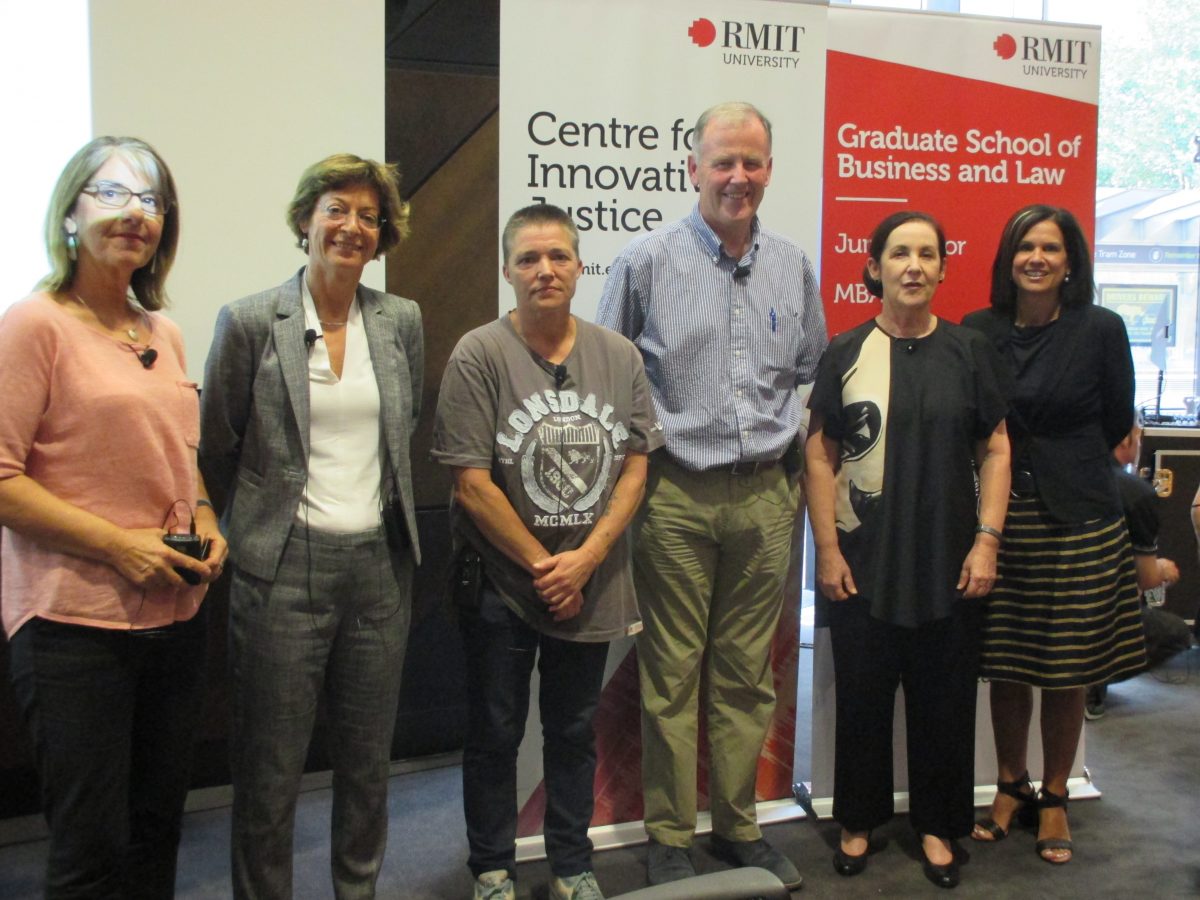Prisons….Unlocking Our Thinking
24 February 2016, 5:30PM-7:30PM
The CIJ hosted Victorian Ombudsman Deborah Glass for a discussion on her latest investigation into Victoria's justice system on 24 February 2016.
Julie Edwards (JSS), Deborah Glass (Ombudsman), Tracy Raeburn (exPrisoner with lived experience), Jan Shuard (Police Commissioner) and Magistrate Rosemary Falla
The aim of the event was to promote the Ombudsman’s report Investigation into the rehabilitation and reintegration of prisoners in Victoria and to raise awareness of the issues facing prisoners whilst in custody and upon their release
Ombudsman Glass’s report covers a range of important issues from rehabilitation and reintegration of prisoners in Victoria and her conclusion is clear: building more prisons does not ensure a safer community.
“Over the last five years there has been an increase in crime, an increase in prisoner numbers and an increase in the cost of prisons (we are spending over a billion dollars a year), and alongside that there has been an increase in recidivism,” she said.
“What we are seeing is more and more people going in to prison and coming back there. Now that is not making us safer as a community.”
Glass recommended that justice reinvestment (the diversion of government spending from prisons into strategies and initiatives designed to reduce offending rates) could help to break the cycle of recidivism and increase community safety.
More than 300 people attended the event including magistrates, barristers, members of the legal, social and community sector and media, law and social work students.
After her presentation, Glass was part of a panel discussion which was led by Rob Hulls, Director, Centre for Innovative Justice, and included Jan Shuard, Commissioner, Corrections Victoria, Magistrate Rosemary Falla, Magistrates’ Court of Victoria, Julie Edwards, CEO, Jesuit Social Services, and Tracy Raeburn, former prisoner.
Hulls asked the panel a range questions on the topics of overcrowding in prisons, links between disadvantage and offending, prisoner services, and support programs in jail.
He pointed that the ‘more than one billion dollars that we are now spending on prisons is money taken from other areas including hospitals, schools and public transport.”
To finish the session he asked each panel member to identify the key thing would help make us safer as a community. Former prisoner, Tracy Raeburn, had the last word.
“Employment. Once you have been a prisoner it is impossible to get a job. Everyone wants police checks and as soon as they find out you have been a prisoner, that’s it, the rest of your life you don’t get a job, you just sit around doing nothing.”
Location
Swanston Academic BuildingLevel 2, Room 7
